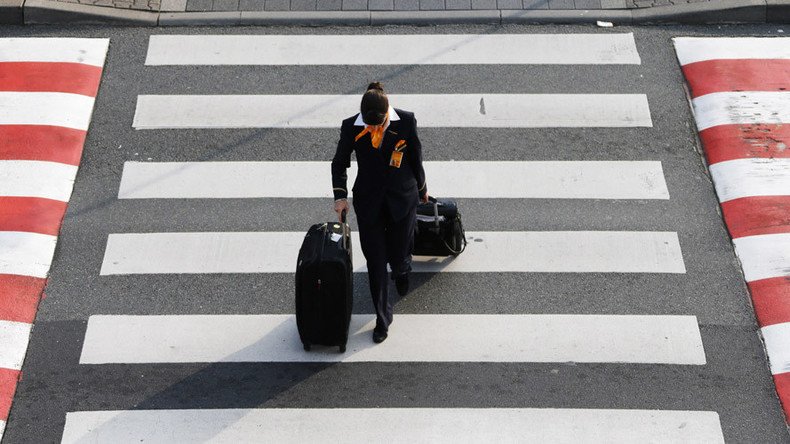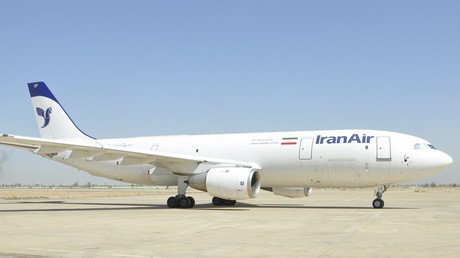Air France stewardesses revolt against Muslim headscarf rule for Iran

Just as the financially strained Air France readies to start flying to Iran again, its stewardesses are rebelling against a measure that will force them to wear headscarves when disembarking in Tehran. Unions are demanding the flights be made voluntary.
The resumption of flights will be made after an eight-year hiatus. A deal with Western powers last year ended the period of trying to strong arm Iran into shutting its nuclear program, and cooperation in various sectors has been taking place since.
The UNAC flight crew’s union’s chief Flore Arrighi said, according to the Telegraph: “It is not our role to pass judgment on the wearing of headscarves or veils in Iran. What we are denouncing is that it is being made compulsory. Stewardesses must be given the right to refuse these flights.”
Face veils, scarves and other religious attire are frowned upon in fiercely secular France, and have been since the start of the 20th century. Headscarves have been banned in schools and offices, while the full face veil is prohibited in public.
In Iran, the return of Islamic rule following the 1979 revolution took things in the opposite direction, although nowhere near some other Muslim countries in terms of severity of punishment or overall attitudes. Saudi Arabia is a marked departure from Shiite Iran. There, stewardesses are made to wear a full body robe called the abaya. The only concession is they don’t have to wear the full-face veil, unlike regular Saudi women.
Air France respects the rights of its flight attendants to “individual freedoms,” but also said “tolerance and respect for the customs of the countries we serve are part of the values of the company.” The resumption of business with Iran is seen as a highly lucrative thing for the ailing airline.
Air France also said that exceptions can normally be made where the restriction of individual liberties is “justified by the nature of the task to be completed.” Evidently, that is not the case with Iran.
The choice the airline normally gives its female staff is between a skirt and trousers, but a long jacket and trousers are required for Iran currently. Stewardesses didn’t object to wearing the head scarf when out in public in Tehran, but not as a mandatory part of their uniforms, according to Christophe Pillet of the SNPNS flight crew’s union,
UNAC, another union, wrote a letter to women’s rights and families minister, Laurence Rossignol, to voice protest over the measure. Rossignol is herself known for run-ins with the system over her remarks, such as that women wearing head scarves are like “negroes who supported slavery.”
The fresh measure put forward by Air France really isn’t so new. It is actually a return to previous measures from before the break in business in 2008. The difference, according to the unions, is in the current global climate. Put simply, there is far less chance a French woman would agree to wear a headscarf today.














